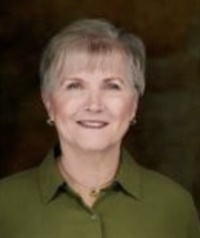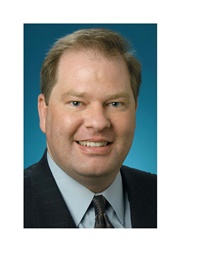Information
COVERAGE ESSENTIALS: Avoiding E&O in the Personal Auto Policy and Personal Umbrella
Length: 3 Hours
Private Passenger Auto (PPA) is the largest line of insurance within the U.S. property and casualty insurance industry. This is likely due to the statutory requirement to carry specified minimum amount of liability coverage coupled with the fact that there are over 270 million private passenger type vehicles registered in the US.
The frequency of personal auto policies often creates an indifference to its complexity. After all, it's just auto coverage, right? This carefree attitude creates the perfect
conditions for errors & omissions (E&O) claims.
PPA is as complex as any line of coverage, but its placement frequency has lessened the industry's attention to detail. Understanding the key concepts and definitions
common to PPA coverage is the key to avoiding E&O claims.
Umbrella and Excess policies are just as problematic; maybe more so. Unlike PPA and other lines, there is not as much uniformity between and among these forms. What we call an Umbrella may actually only be an Excess form. To complicate it even further, what we call an Excess form may actually be a self-contained form that does not provide excess over all underlying coverages.
Insurance is simple in its purpose but complex in its application. This is also true for Private Passenger Auto and Umbrella/Excess policies. Don't be lulled into complacency by the apparent simplicity of these coverages & pay attention to the details.
The PAP has many moving parts, all working together, and it takes knowledge to keep all those parts coordinated. This course walks students through the unique and E&O- laced facets surrounding the Personal Auto Policy and Personal Umbrella.
Basic Course Information
Learning Objectives- PAP Concepts, Eligibility and Definitions
- Who Qualifies as an "Insured" in the PAP
- Understanding Each PAP Coverage Part
- Personal Injury Protection: A Brief Discussion
- Endorsements Every Agent Must Understand
- Trailers, Trusts and Important Endorsements
- Umbrellas and Excess Policies: Key Facts You Can’t Live Without
Major Subjects
- Provides an overview of the personal auto policy and the personal umbrella policy
- Discover who qualifies as an insured under the PAP and PUP
- Discover PIP and how trailer coverage applies
- Understand how a family trust may impact coverage
Nancy Germond, Executive Director, Independent Insurance Agents & Brokers of America

Nancy Germond is the Executive Director, Risk Management and Education, for the Independent Insurance Agents & Brokers of America, the “Big I.” She is located in Phoenix, Arizona. With almost four decades of risk management experience, her unique insights and abilities help businesses better understand and manage their risk. Nancy has authored scores of risk management-related articles, and white papers and has consulted and presented to public-sector and private-sector insurance organizations. She is a licensed P&C agent and adjuster.
A second-generation insurance professional, Nancy was the first risk manager of the City of Prescott, Arizona, and has worked in the private and public sectors as a claim and risk manager. Nancy holds a B.A. in Communication from Mills College and a Master’s degree in sociology from Lincoln University. She also holds the Associate in Risk Management, the Associate in Claims designation from the Insurance Institute of America, the Insurance Training Professional Designation from the Society of Insurance Trainers and is a Senior Professional in Human Resource Management.
Christopher Boggs, CPCU, ARM, ALCM, LPCS, AAI, APA, CWCA, Boggs Risk & Insurance Consulting, LLC

Christopher J. Boggs, CPCU, ARM, ALCM, LPCS, AAI, APA, CWCA, CRIS, AINS, president of Boggs Risk & Insurance Consulting (BRIC) with a focus on education, training, risk and claims consulting with insurance agents and insurance carriers, began the practice of insurance in 1990.
During his nearly three-and-a-half-decade insurance career, Boggs has authored over 2,000 insurance and risk management-related articles on a wide range of topics. Additionally, Boggs has written 15 insurance and risk management books including:
- "The Insurance Professional's Practical Guide to Workers' Compensation: From History through Audit," (now in its second edition);
- "Business Income Insurance Demystified: The Simplified Guide to Time Element Coverages," (now in its third edition);
- "Property and Casualty Insurance Concepts Simplified: The Ultimate 'How to' Insurance Guide for Agents, Brokers, Underwriters and Adjusters;"
- "Wow! I Never Knew That! 12 of the Most Misunderstood and Misused P&C Coverages, Concepts and Exclusions;"
- "Insurance, Risk & Risk Management! The Insurance Professional's Guide to Risk Management and Insurance;"
Boggs is a regular speaker at industry events, having taught or spoken nearly 1,000 times. This includes sessions for the National Association of Mutual Insurance Companies (NAMIC), the National Society of Insurance Premium Auditors (NSIPA), the American Association of Managing General Agents (AAMGA), the Institute of Work Comp Professionals (IWCP), the Chartered Property Casualty Underwriter (CPCU) Society and numerous independent insurance agent state association meetings. He has also earned numerous professional accolades including the 2017 Institute and Faculty of Actuaries (IFoA) Brian Hey Prize and the 2019 Casualty Actuarial Society (CAS) Charles A. Hachemeister Prize as part of a of professional collaboration with a diverse group of professionals.
His professional background includes work as a risk management consultant, loss control representative, insurance producer, claims manager, journalist and columnist, quality assurance specialist, and insurance coverage product manager.
Boggs earned a Bachelor of Science degree in journalism at Liberty University in Lynchburg, Virginia, and holds nine professional designations.


